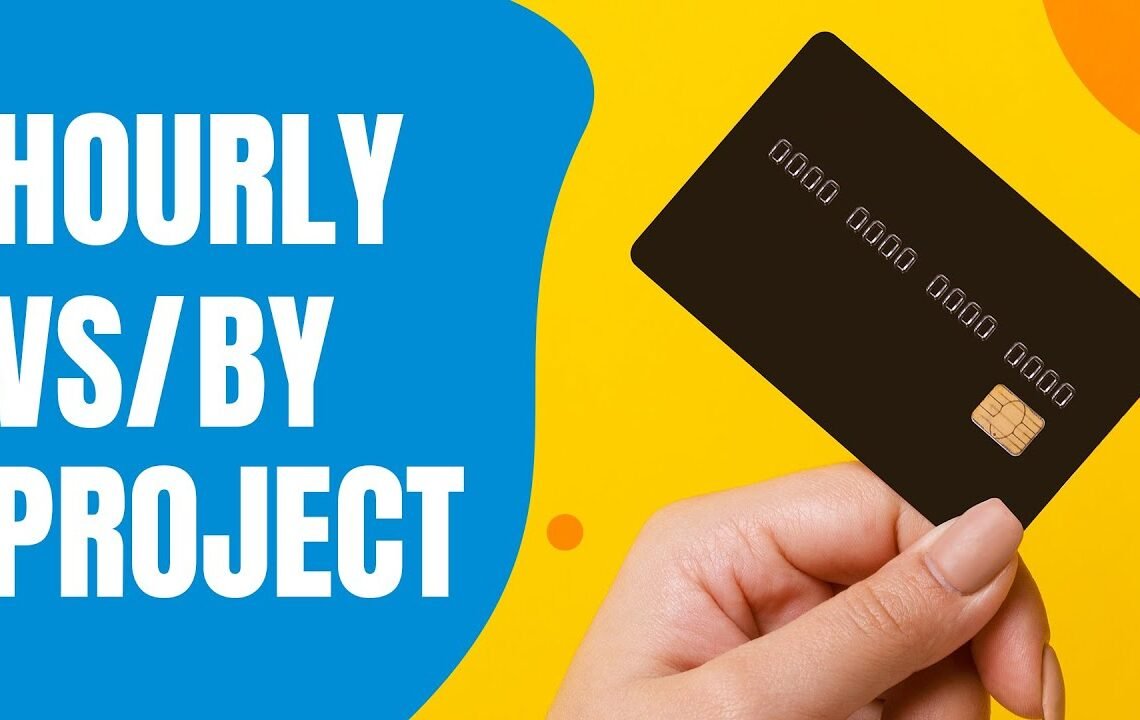Should you charge by hour or by project? (Value based pricing) 👌

Are you struggling with deciding between charging your clients by the hour or by the project? Many freelancers and small business owners face this dilemma when it comes to pricing their services. The traditional hourly rate may seem like the easier option, but there is a better way – value-based pricing. By focusing on the value you provide to your clients rather than the time spent, you can increase your revenue and attract higher quality clients. In this blog, we will explore the benefits of value-based pricing and why it may be the best option for your business. Let’s dive in and discuss how you can make this pricing model work for you.
Should you charge by hour or by project? (Value based pricing)
The debate between charging by hour and charging by project
When it comes to pricing your services as a freelancer or small business owner, one of the biggest decisions you’ll face is whether to charge by the hour or by the project. This debate has been ongoing for years, and it’s important to weigh the pros and cons of each approach before making a decision.
Charging by hour
Charging by the hour is a common pricing model, especially in industries such as law, accounting, and consulting. It’s a straightforward way to ensure that you’re compensated for the amount of time you put into a project, but it can also lead to clients feeling like they’re paying for inefficiency. Additionally, as you become more skilled and efficient at your work, you may find that you’re penalized for being able to complete tasks more quickly.
Pros of charging by hour
- Guaranteed compensation for time worked
- Easier to track and bill for small tasks
- Protects against scope creep
Cons of charging by hour
- Client may feel like they’re paying for inefficiencies
- Potential to be penalized for working quickly and efficiently
- Harder to estimate total project cost for client
Charging by project (Value based pricing)
Charging by the project, also known as value-based pricing, involves setting a fixed price for the entire scope of work. This approach focuses on the value of the service being provided, rather than the time it takes to complete it. While it can be more challenging to calculate a fair price for both the client and yourself, value-based pricing can lead to higher earnings and stronger client relationships.
Pros of charging by project
- Potential for higher earnings on efficient work
- Fosters stronger client relationships
- Encourages a focus on delivering value to the client
Cons of charging by project
- Difficulty in accurately estimating the scope of work
- Risk of underestimating the time and effort required
- Potential for scope creep without clear project boundaries
Which approach is right for you?
Ultimately, the decision to charge by hour or by project will depend on your industry, the type of work you do, and your individual preferences. Many freelancers and small business owners find that a combination of both approaches works best for them, allowing them to bill by the hour for certain tasks while setting fixed prices for larger projects. Value-based pricing can also be a compelling option for those who have developed a high level of expertise and can clearly demonstrate the value they provide to clients.
It’s important to consider the specific needs and expectations of your clients, as well as the resources and costs required to deliver your services. By carefully evaluating your pricing strategy and regularly reviewing your rates, you can ensure that you’re fairly compensated for your work while also providing value to your clients.
Should you charge by hour or by project? (Value based pricing)
Here are some frequently asked questions about the topic:
Q: How do I determine whether to charge by hour or by project?
A: Consider the scope and requirements of the project, the value it will bring to the client, and the market rate for similar projects. Value based pricing takes into account the worth of the project to the client rather than just the time it will take to complete.
Q: What are the benefits of value based pricing?
A: Value based pricing allows you to capture the true value of your work and the benefits it brings to the client. It also incentivizes efficiency and innovation in your work process.
Q: How do I communicate value based pricing to clients?
A: Clearly communicate the benefits and value of the project to the client, and explain how your pricing reflects this. Show how your expertise and input will lead to a successful outcome for the client.
Q: Are there any drawbacks to value based pricing?
A: Value based pricing may require a shift in mindset for both the freelancer and the client. It also requires a strong understanding of the client’s needs and the market value of the project.
By considering value based pricing, you can ensure that you are compensated fairly for the value you bring to your clients.
I hope you find useful my article Should you charge by hour or by project? (Value based pricing) 👌, I also recommend you to read my other posts in my blog.
If you need help with anything join the community or do not hesitate to contact me.
Please consider joining my newsletter or following me on social media if you like my content.


Leave a Reply